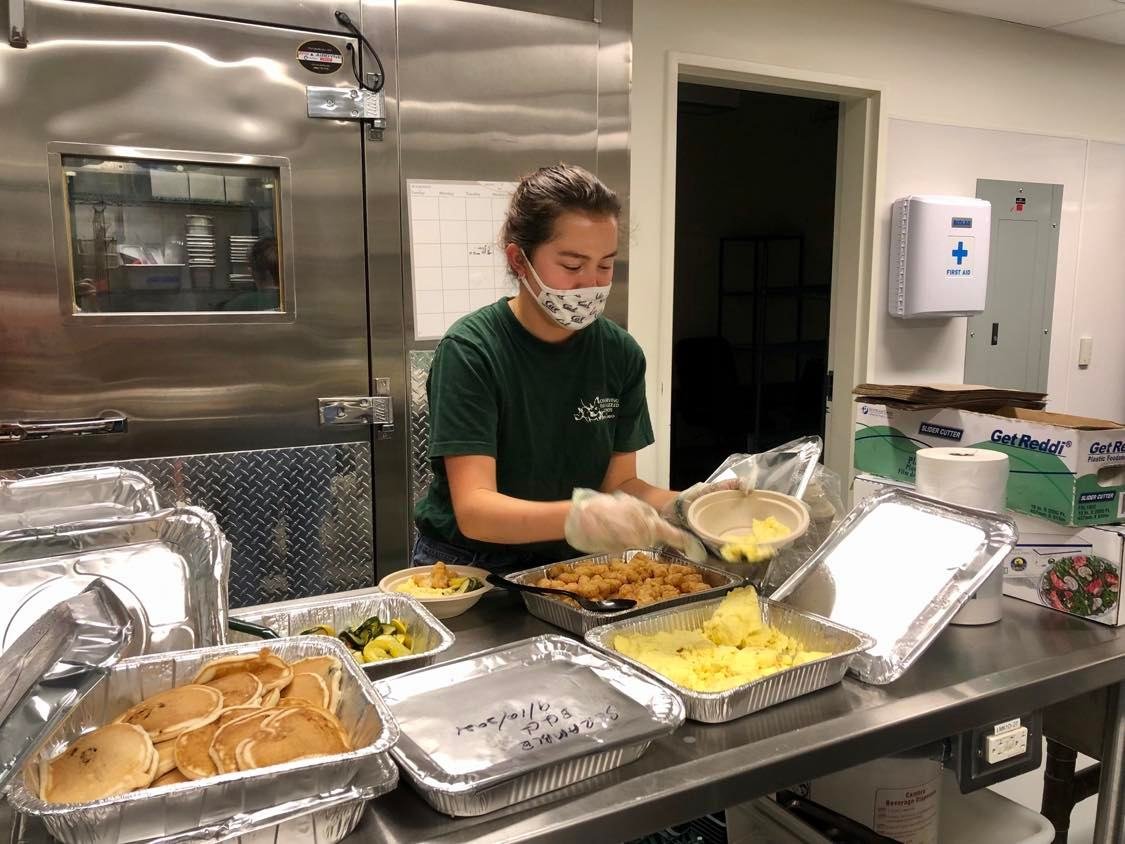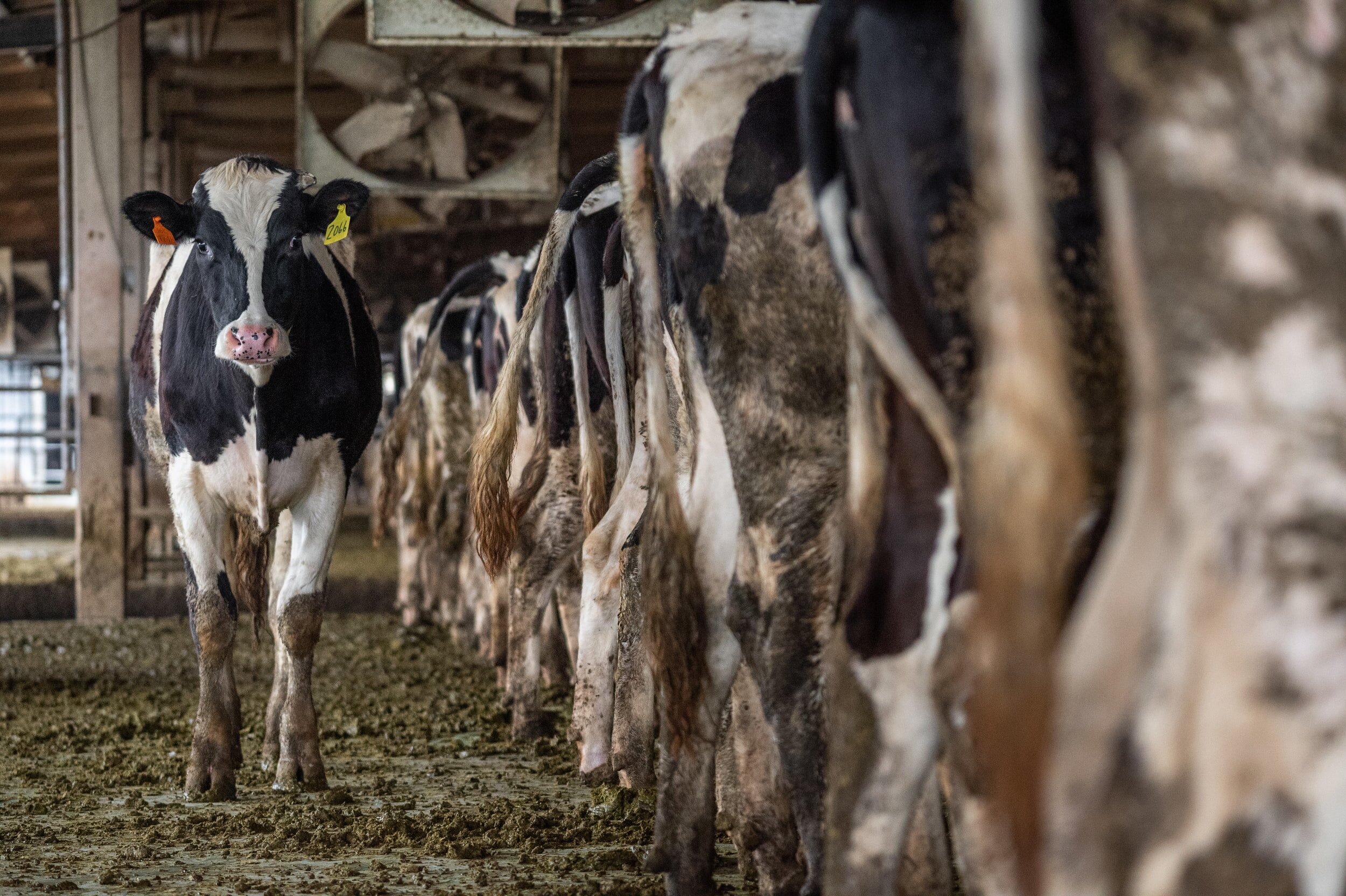With the increase in students on campus, comes an increase in the accumulation of food waste. Not only does food waste greatly contribute to the emittance of greenhouse gasses in landfills, it also loses its purpose as the discarded food can no longer be rerouted to feed those in need…
Read MoreIt’s a brisk, overcast Autumn morning -- stiff legs peel reluctantly out of their beds, buses lurch to their stops, and Berkeley begins to bustle. Through the cold and cloudy hues, warmth pours out of the Berkeley Organic Market. Smells of baking pita bread and sounds of Yemeni dance music beckon passersby in…
Read MoreOn October 28, 2021, the Berkeley Food Institute brought together a panel of Black farmers, organizers, scholars, and activists to bring awareness to the ongoing struggles of Black agrarians and share their stories of anguish, resilience, and hope. Because the majority of Black farmers reside in the southern United States, their battle is one that is rarely discussed among west coast academic institutions…
Read MoreMost of us are familiar with the Old McDonald—the man from the nursery rhyme who had a farm. We picture the farm with a stereotypical red barn with hay, a few pigs rolling in mud, horses, and a couple cows out in huge pastures. This romanticized version of the American farm is no longer a reality.
Read MoreIn 2016, the American dairy industry dumped out over 43 million gallons of milk. Farmers poured gallon after gallon into fields, manure pits, and animal feed. The dairy industry had grown so large that the market was flooded with more milk than consumers wanted, and prices subsequently plummeted.
Read MoreWhile cities can often appear to be a losing battle ground between Mother Nature and concrete, efforts in recent years have yielded a surprising increase in the amount of green speckling the maps of urban areas. Collaborative cultivation of public land through the creation of community gardens is steadily growing in popularity.
Read MoreIn the seemingly endless list of everyday practices interrupted by the COVID-19 pandemic, shopping for food has been, for many, a source of stress and difficulty. Border closures and trade restrictions have disrupted global food chains and affected millions of farmers, farmworkers, and consumers.
Read MoreSocial media influencers and dietitians alike have made avocados the quintessential health food. Pinterest boards of the abundant ways to eat avocados--from guacamole to avocado toast-- have increased sales and popularity of the fruit. While seeming like a harmless commodity, this growth in demand has had environmental justice implications for the farmers who grow these fruits.
Read MoreFor many Americans, the Thanksgiving experience is one deeply ingrained in family dinners, children’s books, and elementary school plays, where miniature versions of Pilgrims and Indians depict a respectful encounter and shared meal. The narrative usually ends there, the supporting cast of friendly Indians to exit stage left while the Pilgrims show off newfound agricultural skills and resilience in a new land. To say this narrative leaves out important details is an understatement.
Read MoreThis veggie pot pie recipe incorporates affordable seasonal produce as well as lentils to make sure you’re not missing out on protein! Making your own dough isn’t as hard as it seems, and the fact that no weird equipment is needed, means that anyone with access to a kitchen can pull this off.
Read MoreGoing zero-waste might not be the move for you right now, but incremental change is still impactful, especially when we take collective action. Let’s start with grocery shopping: here are some tips to reduce your carbon footprint while grocery shopping at Berkeley Bowl! These tips can also apply to non-Berkeley Bowl stores.
Read MoreAlthough pescetarianism includes the consumption of animal products, some researchers have concluded that the diet has a relatively low carbon footprint, contributing to the common understanding that it’s a good alternative for veganism. In a study conducted at the University of Washington, researchers found that diets that incorporate seafood can actually have a lower environmental impact than entirely plant-based diets.
Read More











